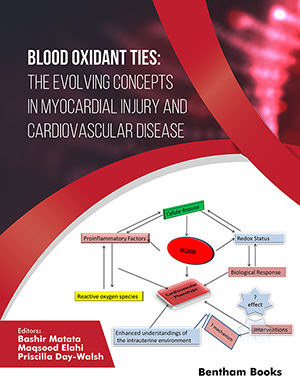Abstract
Among the different subtypes of ischaemic strokes, almost 20 % are of cardiac origin. Different are the causes of cardioembolic stroke, but the most common is the atrial fibrillation, a supraventricular arrhythmia.
Appropriate use of antiplatelet drugs and anticoagulants after transient ischaemic attack (TIA) or ischaemic stroke depends on whether the underlying cause is cardioembolic or of presumed arterial origin.
Adequate antiplatelet therapy is recommended for secondary prevention after cerebral ischaemia of presumed arterial origin, whether for patients with TIA and ischaemic stroke of cardiac origin, mainly due to atrial fibrillation. Vitamin K antagonists (VKAs) are highly effective in preventing recurrent ischaemic stroke but have important limitations and are thus underused.
Current guidelines still regard Vitamin K Antagonists at INR 2·0–3·0 to be the standard treatment after cerebral ischaemia of cardiac origin for patients who can tolerate them. In this setting antiplatelet therapy provides an alternative when oral anticoagulation is contraindicated or when patient choice or compliance limits choice of therapy, but is much less effective than VKAs. Recent trial data performed with new anticogulants such as the factor Xa and thrombin inhibitors will need to be taken into account, in order to prevent several of the clinical problems actually related to VKAs use.
Keywords: Vitamin K antagonists, stroke, prevention, cardiac embolism.
Current Vascular Pharmacology
Title:Antivitamin K Drugs in Stroke Prevention
Volume: 11 Issue: 6
Author(s): Domenico Di Raimondo, Antonino Tuttolomondo, Carmelo Butta, Benedetto Lucifora, Giuseppe Licata and Antonio Pinto
Affiliation:
Keywords: Vitamin K antagonists, stroke, prevention, cardiac embolism.
Abstract: Among the different subtypes of ischaemic strokes, almost 20 % are of cardiac origin. Different are the causes of cardioembolic stroke, but the most common is the atrial fibrillation, a supraventricular arrhythmia.
Appropriate use of antiplatelet drugs and anticoagulants after transient ischaemic attack (TIA) or ischaemic stroke depends on whether the underlying cause is cardioembolic or of presumed arterial origin.
Adequate antiplatelet therapy is recommended for secondary prevention after cerebral ischaemia of presumed arterial origin, whether for patients with TIA and ischaemic stroke of cardiac origin, mainly due to atrial fibrillation. Vitamin K antagonists (VKAs) are highly effective in preventing recurrent ischaemic stroke but have important limitations and are thus underused.
Current guidelines still regard Vitamin K Antagonists at INR 2·0–3·0 to be the standard treatment after cerebral ischaemia of cardiac origin for patients who can tolerate them. In this setting antiplatelet therapy provides an alternative when oral anticoagulation is contraindicated or when patient choice or compliance limits choice of therapy, but is much less effective than VKAs. Recent trial data performed with new anticogulants such as the factor Xa and thrombin inhibitors will need to be taken into account, in order to prevent several of the clinical problems actually related to VKAs use.
Export Options
About this article
Cite this article as:
Raimondo Di Domenico, Tuttolomondo Antonino, Butta Carmelo, Lucifora Benedetto, Licata Giuseppe and Pinto Antonio, Antivitamin K Drugs in Stroke Prevention, Current Vascular Pharmacology 2013; 11 (6) . https://dx.doi.org/10.2174/157016111106140128113404
| DOI https://dx.doi.org/10.2174/157016111106140128113404 |
Print ISSN 1570-1611 |
| Publisher Name Bentham Science Publisher |
Online ISSN 1875-6212 |
Call for Papers in Thematic Issues
Ischemic Cardiovascular Diseases: Mechanisms, Diagnosis and Therapy
Ischemic cardiovascular disease includes myocardial infarction, coronary atherosclerotic heart disease, angina pectoris, etc., constitute the leading cause of patient mortality by preventing tissues from getting sufficient oxygen and nutrients. Ischemic heart disease, as a clinical condition, is characterized by myocardial ischemia, causing an imbalance between myocardial blood supply and demand, ...read more
TREATMENT OF CARDIOVASCULAR DISEASE IN CHRONIC AND END STAGE KIDNEY DISEASE
Cardiovascular disease still remains the leading cause of death in Chronic and End Stage Kidney Disease, accounting for more than half of all deaths in dialysis patients. During the past decade, research has been focused on novel therapeutic agents that might delay or even reverse cardiovascular disease and vascular calcification, ...read more
 31
31
- Author Guidelines
- Graphical Abstracts
- Fabricating and Stating False Information
- Research Misconduct
- Post Publication Discussions and Corrections
- Publishing Ethics and Rectitude
- Increase Visibility of Your Article
- Archiving Policies
- Peer Review Workflow
- Order Your Article Before Print
- Promote Your Article
- Manuscript Transfer Facility
- Editorial Policies
- Allegations from Whistleblowers
- Announcements
Related Articles
-
Inflammatory Mediators and the Failing Heart: A Translational Approach
Current Molecular Medicine Closed-loop Neuropharmacology for Epilepsy: Distant Dream or Future Reality?
Current Neuropharmacology Ubiquitin and ubiquitin-like proteins in cardiac disease and protection
Current Drug Targets Factors Modulating Fibrates Response: Therapeutic Implications and Alternative Strategies
Endocrine, Metabolic & Immune Disorders - Drug Targets Peptidomimetic Inhibitors of Cathepsin K
Current Topics in Medicinal Chemistry MicroRNAs in Cardiovascular Therapeutics
Current Topics in Medicinal Chemistry Neurodevelopmental Delay and Intellectual Disability in Pediatric Heart Transplant
Current Psychiatry Reviews The Role of Adipokines in Hypertension and Cardiovascular Disease
Current Hypertension Reviews Postponing Motherhood: A Demographic and Contemporary Issue
Current Women`s Health Reviews Modulation of Collagen Turnover in Cardiovascular Disease
Current Pharmaceutical Design The Future of Collateral Artery Research
Current Cardiology Reviews A Mitochondrial Approach to Cardiovascular Risk and Disease
Current Pharmaceutical Design Association Between Intra-Hospital Uncontrolled Glycemia and Health Outcomes in Patients with Diabetes: A Systematic Review of Observational Studies
Current Diabetes Reviews Protein Phosphatase Inhibition: Structure Based Design. Towards New Therapeutic Agents
Current Pharmaceutical Design Human Ghrelin: A Gastric Hormone with Cardiovascular Properties
Current Pharmaceutical Design Potential Relevance of Melatonin Against Some Infectious Agents: A Review and Assessment of Recent Research
Current Medicinal Chemistry Targeting Calcium and the Mitochondria in Prevention of Pathology in the Heart
Current Drug Targets Dexrazoxane for the Prevention of Cardiac Toxicity and Treatment of Extravasation Injury from the Anthracycline Antibiotics
Current Pharmaceutical Biotechnology Anemia and Chronic Kidney Disease: Making Sense of the Recent Trials
Reviews on Recent Clinical Trials Cardiac Complications Attributed to Hydroxychloroquine: A Systematic Review of the Literature Pre-COVID-19
Current Cardiology Reviews


























